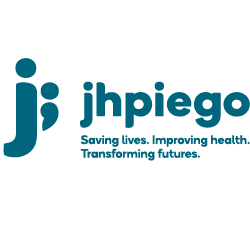Overview
USAID Afya Yangu–RMNCAH is a five-year project (2022–2027) aimed at increasing the demand for and use of quality integrated RMNCAH services, particularly by women and youth in Tanzania. The project is implemented in 11 regions of Tanzania mainland and Zanzibar. USAID Afya Yangu–RMNCAH outcomes is to increased use of, demand for and access to quality integrated RMNCAH and immunization services, particularly by youth and women.
To enable the project, execute its mandate, the project has as incorporated implementation research and program learning with the aim of using study findings to focus and inform project interventions and improve immunization services and program outcomes in project supported regions.
Jhpiego seek services of individual Research Assistants to support field data collection for a study to be conducted in USAID Afya Yangu – RMNCAH project supported 10 regions of Tanzania mainland and in Zanzibar (both Unguja and Pemba) in a total of 11 selected councils.
Title of the Study: “Evaluation of effectiveness of Reach Every Child (REC) and Periodic Intensification of Routine Immunization (PIRI) approaches for strengthening immunization services in the USAID Afya Yangu – RMNCAH Project Supported Regions
Statement of work:
Jhpiego is seeking for individuals to support study activities related to conducting a household surveys sampling using a sampling program, through which:
- All households in selected enumeration areas (EAs) will be surveyed to identity the ones with eligible participants (mapping).
- Using a sampling program, the appropriate number of households with eligible participants will be selected to participate in the study
- Households with children aged between 11 -35 months will be interviewed.
Specifically, the Research Assistants will be responsible for various aspects of data collection using electronic devices (tablets) including requesting consent from parents/care giver at the selected household.
Reports to: Jhpiego –Advisor- Program Learning and Research and supervised by study Principal Investigator
Location: Dar es Salaam, Tabora, Mwanza, Mara, Shinyanga, Simiyu, Geita, Dodoma. Katavi, Manyara, Pemba and Unguja
Duration of Engagement
This work is for duration up to a maximum of 35 calendar days beginning 1 September 2024 to 5th October 2024.
Position will be closed on August 20, 2024
Responsibilities
The Data Collector is required to demonstrate professionalism and adherence to research ethics and procedures as identified in the study field implementation manual. S(he) will be thoroughly versed in the study protocol and have a detailed understanding of data collection processes, data security, storage, and transfer procedures.
The Data Collector will strictly adhere to the study protocol and data integrity. The roles include.
- Work closely with the study field supervisors to conduct household mapping and selection of household for the interviews
- Conduct all survey activities including consenting and interviewing participants in accordance with the procedures described using tablets
- Safely and securely maintain the tablet and ensure that it is fully charged when needed and during all times of data collection
- Must be able to complete interviews on the tablets with accuracy and reasonable speed
- Manage short-term storage of all study data
- Collect, organize and transfer electronic data files as per data collection SOP
- Taking responsibility for the safety and ensuring good condition of all study materials and equipment under his/her care
- Inform the field supervisor of any challenges that may limit data collection procedure
- Attend daily feedback session as guided and planned by the Team Leader/Supervisor
- Perform any other study related duties as assigned by supervisor
Specific Tasks
- Conduct Household mapping of selected villages/Mitaa
- Conduct recruitment of and consenting of study participants and documentation of consents as per filed implementation manual.
- Conduct Household interviews using a structured questionnaire with study participants in about 6768 households
- Conduct client exit surveys at the selected study health facilities
- Conduct Focus group discussions and Key informant interviews
Required Qualifications
- Research experience in conducting household surveys.
- Strong and fast computer skills include the ability to use smart phone in data collection.
- Ability to conduct quality interviews using handheld tablets.
- Computer skills is an added advantage.
- Ability to read and write in English and Swahili languages
In addition, the Data Collector should:
- Be available to attend Research Assistants training.
- Be able to commit him/herself continuously for thirty (30) days.
- Be flexible and prepared to work additional hours.
- Be willing to and committed to his/her work away from home and travel continuously in remote areas.
- Be able to organize oneself and work independently of close supervision as well as be a good team player.
- Previously engaged in similar tasks not more than 2 years ago.
- Be willing to accept daily payment in relation to the completion of the assigned tasks at the required quality and standards.
Jhpiego offers competitive salaries and a comprehensive employee benefits package.
Please apply at www.jhpiego.org/careers
Applicants must submit a single document for upload to include: cover letter, resume, and references. Please ensure that you clearly state your preferred region(s)
For further information about Jhpiego, visit our website at www.jhpiego.org
Note: The successful candidate selected for this position will be subject to a pre-employment background investigation.
Jhpiego is an Affirmative Action/Equal Opportunity Employer
Jhpiego, a Johns Hopkins University affiliate, is an equal opportunity employer and does not discriminate on the basis of gender, marital status, pregnancy, race, color, ethnicity, national origin, age, disability, religion, sexual orientation, gender identity or expression, veteran status, other legally protected characteristics or any other occupationally irrelevant criteria. Jhpiego promotes Affirmative Action for minorities, women, individuals who are disabled, and veterans


